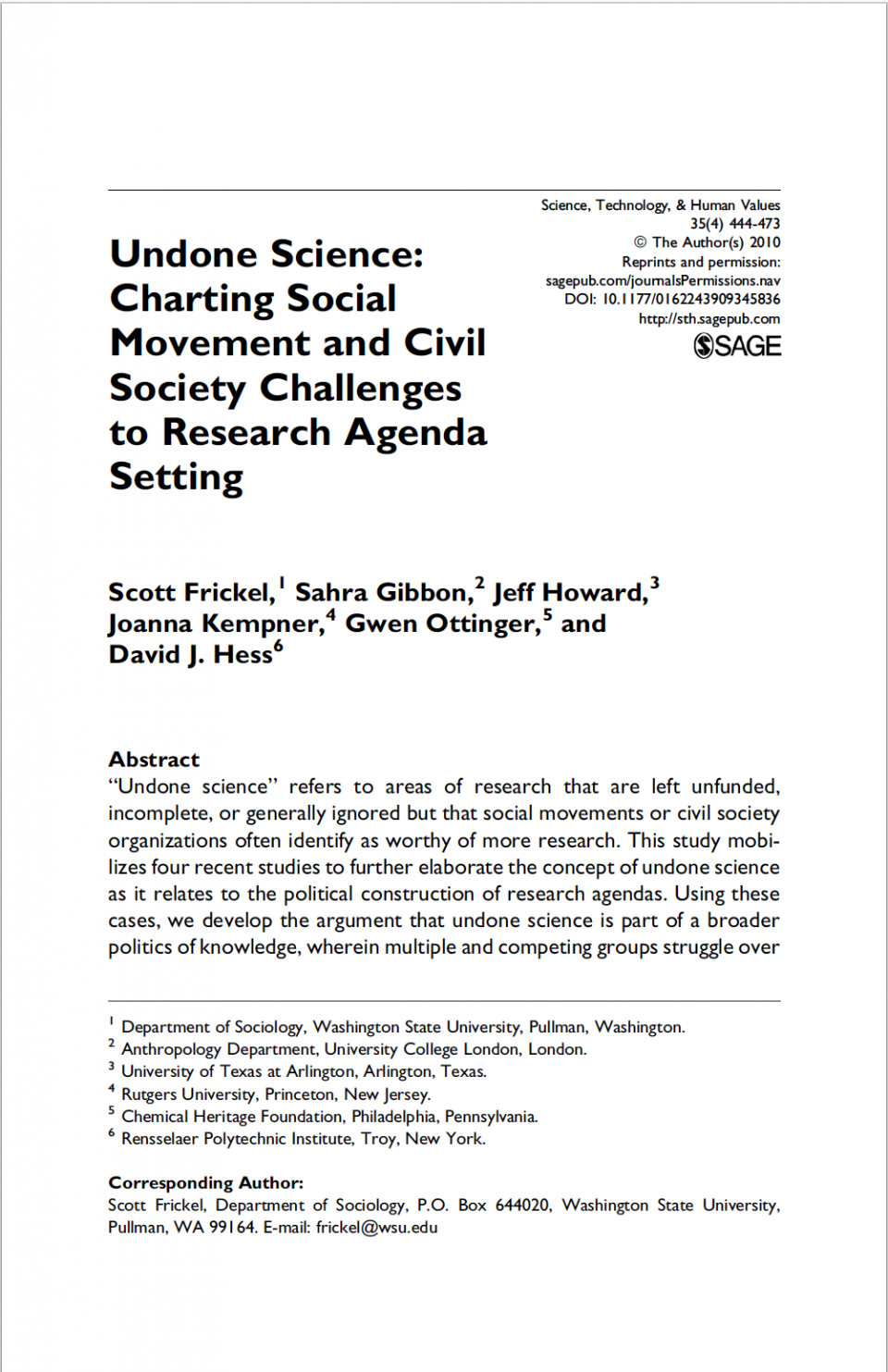ARTICLE ABSTRACT: "Undone science" refers to areas of research that are left unfunded, incomplete, or generally ignored but that social movements or civil society organizations often identify as worthy of more research. This study mobilizes four recent studies to further elaborate the concept of undone science as it relates to the political construction of research agendas. Using these cases, we develop the argument that undone science is part of a broader politics of knowledge, wherein multiple and competing groups struggle over the construction and implementation of alternative research agendas. Overall, the study demonstrates the analytic potential of the concept of undone science to deepen understanding of the systematic nonproduction of knowledge in the institutional matrix of state, industry, and social movements that is characteristic of recent calls for a "new political sociology of science."

Scott Frickel, Sahra Gibbon, Jeff Howard, Joanna Kemper, Gwen Ottinger and David J. Hess, "2010. Frickel et. al. "Undone Science: Charting Social Movement and Civil Society Challenges to Research Agenda Setting"", contributed by James Adams, STS Infrastructures, Platform for Experimental Collaborative Ethnography, last modified 7 June 2018, accessed 23 April 2024. http://www.stsinfrastructures.org/content/2010-frickel-et-al-undone-science-charting-social-movement-and-civil-society-challenges
Critical Commentary
In this 2010 article, Frickel et. al contribute to an incipient political sociology of science with the introduction of the concept of "undone science" and an analysis of how a matrix of state, industry, and social-movement interests enables the systematic nonproduction of knowledge on environmental health and certain other areas of scientific inquiry.